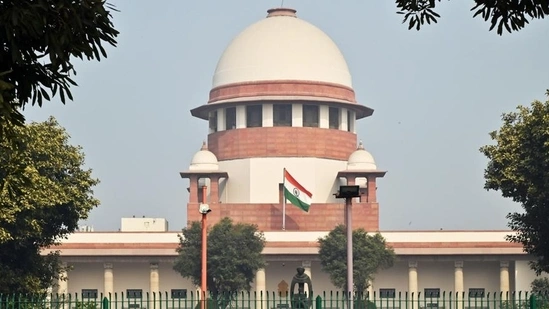In an announcement on May 5, 2025, the Supreme Court stated that it will hear petitions challenging the constitutionality of the Waqf (Amendment) Act, 2025. The bench chaired by the new Chief Justice B.R. Gavai, is set to hear the case on May 15, 2025, while it was previously before the bench chaired by CJI Sanjiv Khanna, who retires on May 13, 2025. The Government had assured the court that it would not denotify waqf properties or appoint any members to waqf bodies before May 5. The bench found the need to hear the matter in detail and directed the matter to be listed before the bench of Gavai.
The Waqf (Amendment) Act, 2025 has been signed by President Droupadi Murmu and welcomed into law on 5 April 2025. The Act made a series of amendments to the Waqf Act, 1995, including repealing the provision for “waqf by user” and allowing non-Muslims to become members of the Central Waqf Council and State Waqf Boards. There has been broad-based controversy generated by these amendments. Numerous political parties, civil society organizations, Muslim organizations, and individuals filed petitions challenging the constitutionality of the Act. The Supreme Court has listed five representative petitions for hearing, including the petition filed by AIMIM chief Asaduddin Owaisi.
Also check:- Report on Justice Yashwant Varma Controversy Submitted to Chief Justice of India
The Supreme Court heard the question on April 16 and 17, 2025. Senior Advocate Kapil Sibal appearing for the petitioners expressed concerns with the 2025 Amendment Act, and especially the absence of “waqf by user” as contested. He argued that it is impossible to produce registration documents for mosques, dargahs, etc., that were built hundreds of years ago, almost all of which are “waqf by user.” On April 17, the Central government told the bench composed of CJI Sanjiv Khanna, Justice Sanjay Kumar, and Justice K.V. Viswanathan that it would not denotify waqf properties, “waqf by user”, or take any action to appoint members to the Central Waqf Council or the boards of waqf properties until May 5. The Court recorded the government’s representation and noted that waqf properties formed part of a “waqf by user”, that had been registered or otherwise notified already as waqf property would remain unaffected until the next date of hearing.
The Supreme Court on May 5 ordered the hearing to be held on May 15 in front of a bench of judges led by Justice B.R. Gavai. CJI Sanjiv Khanna stated that he did not want to reserve any judgment or interim order as he wanted to have a full hearing of the issue. the judge’s remarks. He emphasized that the issue needed to be heard in full, every listing, and would not be concluded during his term, by suggesting to the parties that it can be listed in front of Justice Gavai’s bench. There was then agreement by Senior Advocates Kapil Sibal, A.M. Singhvi, and Solicitor General Tushar Mehta with the proposal. The bench noted that Government and petitioners’ submissions with respect to waqf registrations were valid and needed further delineation. To facilitate the CJI Khanna’s limited working days, the matter was transferred to Justice Gavai’s bench to allow him to have interim and final orders made to give him time to look at the paperwork.
Justice Gavai will assume Chief Justice of India role on May 14 and will sit on the bench hearing this matter on May 15. The Government has argued that the Waqf (Amendment) Act, 2025 was properly debated and passed by Parliament and therefore cannot be stayed without hearing the Governments position. Solicitor General Tushar Mehta pointed out that there is a presumption of constitutionality for the law. The Government is opposed to interim orders that would stay the being denotified of waqf properties, which is “waqf by user,” and a provision that allows non-Muslims on the Central Waqf Council and Waqf Boards. The petitioners argued that the amended legislation violates the safeguards arose from the Constitution.
They contend that the removal of the “waqf by user” clause makes it impossible to verify registration documents for centuries old mosques, dargahs, etc., and that having non-Muslims as part of waqf bodies destroys the religious nature of waqf institutions, and that the government guarantee on waqf properties should still be in place until the next hearing.
The Waqf (Amendment) Act, 2025, has ignited national discussion and judicial scrutiny. The outcome of the case could have very broad implications on land ownership and religious endowments. As one of the major cases being heard by the new Chief Justice there has been considerable attention. On May 15, the bench of Justice Gavai will hear the petitions. The outcome of the case will have consequences for the future enactment of waqf law and the appropriateness of managing properties pertaining to waqf in India.


